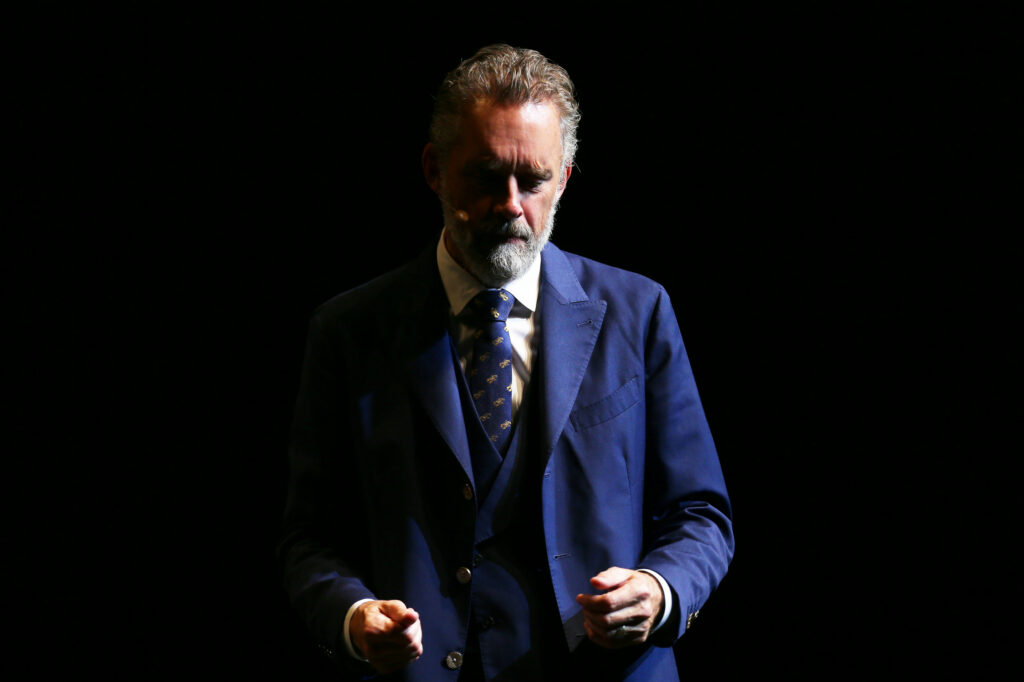Blog Post
We must stand our ground on pronouns: Jordan Peterson picked the right fight
By Jonathon Van Maren
In the autumn of 2016, trans activists targeted Dr. Jordan B. Peterson, at the time a relatively obscure psychologist based at the University of Toronto. Peterson had released a video explaining why he opposed proposed Canadian legislation, Bill C-16, an amendment to the Canadian Human Rights Act regulating speech regarding gender identity. Due to his decades-long study of totalitarianism, Peterson stated in no uncertain terms that in the fight for civilization, language was always one of the first battlefields—and was thus the hill to die on. We all know how that fight went. Instead of getting cancelled, Peterson got rich and famous.
After the fact, many wondered: why was Peterson so willing to sacrifice his career over the issue of transgender pronouns? He is now one of the world’s most well-known intellectuals, but at the time there was every likelihood that his story would end the way most of these incidents do—with a quiet firing, a 24-hour news story, and another victory for the dudes in drag. I heard a student ask Peterson this question at one of his early lectures in 2017, before he launched his global tours marked by the presence of security and prohibitive speaking fees.
His response was simple: why not? Usually, he pointed out, there are few compelling reasons to die for any particular patch of soil. But in order to fight, one has to draw a line. For Peterson, that line was language. He would not say what the trans activists and their government enforcers told him he must say, because he refused to cede the right to choose his words to the state.
It is cliché to mention George Orwell these days—everyone does it. But when it comes to explaining how totalitarians of all stripes manipulate language for ideological ends, it is difficult to beat 1984. “Don’t you see that the whole aim of Newspeak is to narrow the range of thought?” Syme, of the Ministry of Truth, tells Winston Smith. “In the end we shall make thoughtcrime literally impossible, because there will be no words in which to express it.”
When the range of available terminology is narrowed, so are the boundaries of the debate. When you accept the confines placed on language—or, in the case of ‘preferred pronouns’, use the compelled speech demanded of you—you accept ground chosen by your ideological opponents and agree to put aside the most potent weapons you have for making your case: words.
There are many on the Right who believe the entire pronoun debate to be a waste of time. With so many cultural battles that must be fought, this is understandable. Sensing this, many trans activists and their allies are eager to present their demands as a mere matter of courtesy. Just stop being such a jackass, they say. How does it hurt you to call someone what they want to be called? We’re not asking you to believe it, in your heart of hearts. We’re just asking you to play along in public. Although they don’t say it out loud, those of us listening closely can hear their silent conclusion: for now.
When I attempt to discern whether a political figure or commentator is willing to fight the tides of the times, I find that the issue of pronouns is a good bellwether. If they are willing to use masculine pronouns for a woman claiming to be a man, or female pronouns for a man claiming to be a woman, then they’ve told us everything we need to know about themselves. To cede pronouns is to cede premises, for if you are willing to play along for the sake of courtesy, where does it stop? How can you demand that the fellow you just called a ‘she’ be kept out of the women’s changerooms or from exposing ‘herself’ to girls and women at the spa?
READ THE REST OF THIS COLUMN AT THE EUROPEAN CONSERVATIVE








